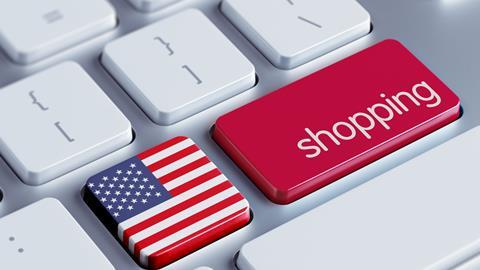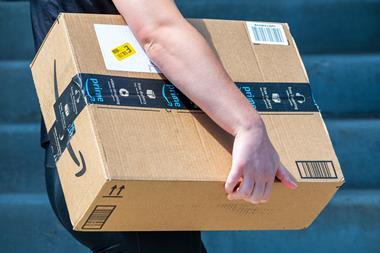2020 has been a heck of a year but further challenges lie ahead as the pandemic continues to take its toll and retailers attempt to manage restrictions.
Despite all the uncertainty, ecommerce is thriving. Online sales are projected to increase by more than 35% this festive period to nearly $190.5bn in the United States alone, according to eMarketer.
It appears that when the going gets tough, the tough shop.
In the US, roughly 71% of adults say they will do more than half of their holiday shopping digitally. That is exciting news for ecommerce businesses, but it means you will have to be at the top of your game.
With American consumers splashing the cash online, selling into the US could be more appealing to UK retailers than ever before. However, there is a lot to consider.
Foreign (‘remote’) businesses selling goods to US businesses or customers are having to learn the rules of sales tax quickly as states roll out their new legislation following the 2018 Wayfair Supreme Court ruling.
This ruling now means states can charge tax on sales made from retailers outside the state even if the retailer does not have a physical presence in it.
It is the complex details of sales tax that can undo your remote business and leave you open to heavy fines or disappointed customers.
Below are our three top tips to avoid mistakes as a remote business and to make sure retailers are on the front foot when it comes to sales tax.
1. Understanding the nexus rules
In the US, each state has its own tax requirements and the sales tax ‘nexus’ defines where a business needs to register for sales tax.
Following the Wayfair ruling, states are rewriting their nexus rules and registration thresholds at a blistering pace.
With states inconsistent in their design, it is becoming a major bureaucratic headache. It is integral that retailers have an in-depth understanding of state-by-state obligations and individual thresholds for each area.
2. Getting the rates and boundaries right
There are over 12,000 tax jurisdictions in the US – including states, counties and cities – and rates change frequently. Using an automated rate tracker solution will help get the precise rate for each customer transaction and reduce audit risks penalties.
3. Matching the correct rates with your products
Ensuring you understand which of the thousands of rates apply to your products – taxability – is a perplexing and distracting quagmire.
Avalara can help tie your goods or services to our automated accurate product tax codes. This means your US taxability rules are always up to date, mitigating any potential fines.
For more information, download your free Sales tax for European businesses guide.
Sacha Wilson is director of tax technology solutions across EMEA at Avalara

Wilson’s team helps businesses of all size automate the complexities of global tax compliance. Wilson’s background in business development and ecommerce spans more than 20 years and covers blue-chips such as Amazon and Arcelor-Mittal as well as several dotcom start-ups. During 11 years at Amazon he launched and grew a number of programmes including Amazon’s Marketplace, Fulfilment by Amazon, Amazon Pay and Product Ads. He brings a depth in understanding of ecommerce and the tax issues facing European businesses involved in global trade.





























